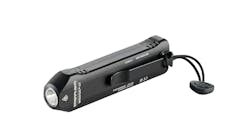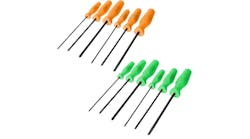Americans spent 5.5 billion hours in traffic in 2011, yet many drivers are unaware that when driving in heavy traffic, the air inside a vehicle is likely of worse quality than the outside air. As a result, it is important to check a vehicle’s cabin air filter annually, as the filter is designed to protect passengers from harmful airborne pollutants.
In addition to reporting that motorists waste billions of hours idling in traffic congestion, the 2012 Annual Urban Mobility Report from Texas A&M also noted that traffic jams on the way to or from work averaged 38 hours of commuters’ lives in 2011 – nearly four hours longer than the average workweek. The end result was clogged roads costing Americans $121 billion in time and fuel in 2011.
“If Americans are going to collectively sit in traffic for 5.5 billion hours a year, then they should consider checking their vehicle’s cabin air filter annually and replacing as needed,” said Edward Covington, vice president of quality assurance for WIX® Filters, a global manufacturer of filtration products celebrating its 75th anniversary. “Cabin air filters are designed to capture contaminants, such as soot, dirt and other airborne pollutants, in most systems before they can enter the vehicle.”
Like any filter, cabin air filters work in similar fashion to oil, air and fuel filters for the engine, must be changed and have a finite life. However, cabin air filters often go unchanged because most car owners do not realize their vehicle has a cabin filter. According to Covington:
• Cabin air filters are designed to capture airborne contaminants such as soot, dirt, grime, pollen and other pollutants that enter a vehicle cabin through its heating, ventilation and air conditioning (HVAC) system.
• More than 80 percent of all domestic and foreign nameplate vehicles sold in the U.S. are equipped with a cabin air filter.
• A one year, or 12,000- to 15,000- mile change interval, is recommended by most manufacturers; however, users should follow the guidelines in their owner’s manual.
• Using advanced filter media innovations, WIX Filters offers a full line of high-efficiency cabin air filters for passenger cars, light trucks, heavy trucks and buses, and off-highway vehicles.
• WIX cabin air filters with BioShield® 75 not only filter the air, they prevent the growth of a wide array of bacteria, mold, mildew, algae and yeast. This is extra protection against odor and the microbes that can cause allergies.
“Depending on where and how you drive, most vehicle manufacturers recommend changing the cabin air filter every two years, or sooner as needed based on conditions, and it is also a good idea to check the filter annually,” Covington said. “Drivers should check their owner’s manual for the recommended service and maintenance intervals of their vehicles.”
For more information, visit www.wixfilters.com.

